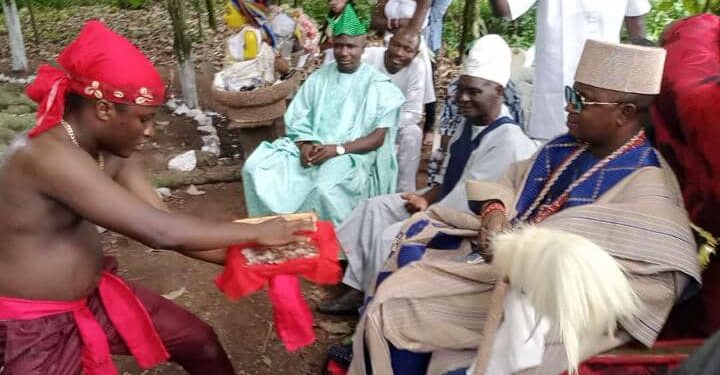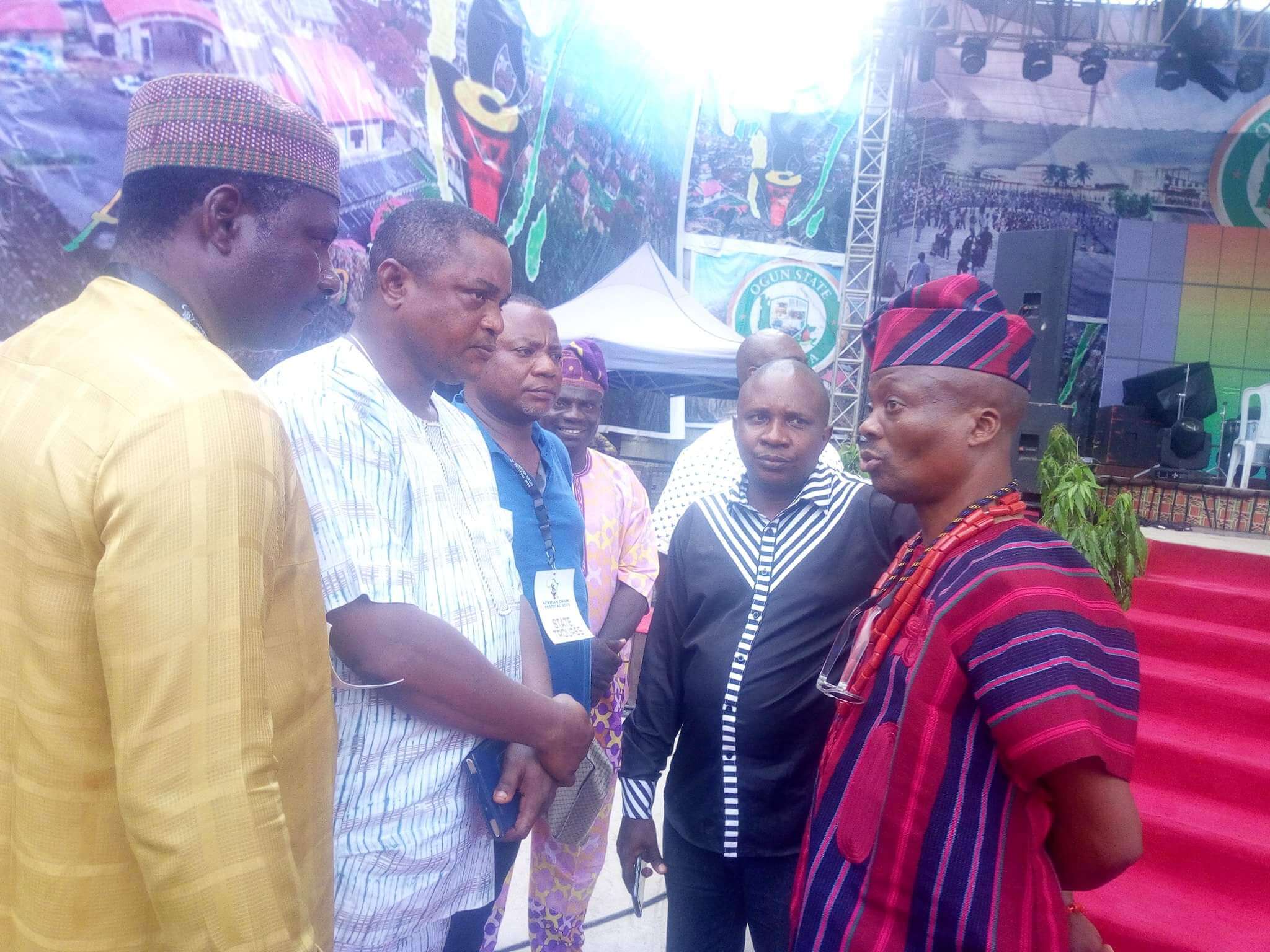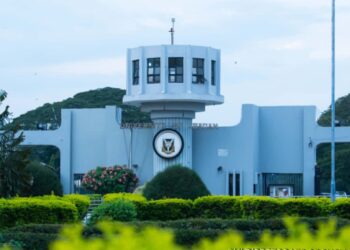The Agbalumo festival of peace, harmony, and abundance has taken a new shape in the town of Ileegbo Ijesha, as tourists, cultural enthusiasts, and media professionals from across the globe are curious about the mysterious events, which have revived a long-lost historical and traditional ceremony of African society through the Ijesha ethnic lens of Yoruba origin.
The city had neglected the core values of its cultural and traditional essence before His Royal Majesty, Oba Abdulrazak Abiola Olanbiwonninu Esan, emerged as the first king of the town, traditionally titled the Oniileegbo-Ijesha. Still, a single tree has changed the narrative through love, caution, and feasts.
According to Oba Esan, “This Agbalumo festival remains one of the cardinal pillars that preach the essence of peace and unity in the community, and the unique fact about the festival is the ability of this particular tree to be able to supply fruits without regard to the number of persons, gender or race.
“I got to know about the tree when some people in the community insisted on selling off the tree, unknowingly to them that there are mysteries surrounding the tree.
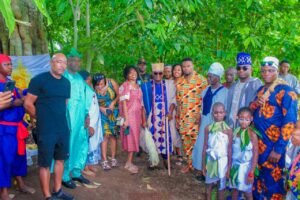
“The mysterious sides of the tree began to evolve as all attempts to bring it down failed, and in the effort to understand the nature of the tree, several consultations were made. Then, we decided to adopt a pragmatic and intellectual approach, with our foundation in consulting the Ifa Oracle in conjunction with the perceptions of Osun, Sango, and Esu.
“We need to appreciate the mysterious aspects inherent in our cultural values.”
Mysteries Behind Agbalumo Festival
He also noted, “This is the era we are determined to revive the dying nature of our core cultural values in the face of modernisation and globalisation of the twenty-first century. He serves as the guardian of the community’s traditional and cultural orientations.
“I am determined to take my community beyond the agro-tourism proposals because the cultural and traditional ingredients inherent in the town are worthy of tourism attractions beyond the scope of agricultural proposals.
The priestess of the Osun deity, Senge Osunlewa, reveals, “The existence of the Agbalumo festival is as old as the Yoruba society because there are many societies within the traditional setting of any given society.
The unique aspect of the Agbalumo festival in Ileegbo-Ijesha is that we are compelled to reckon with the powers and authorities of Yoruba gods and goddesses, which are inherent in this tree. Two different individuals purchased this Agbalumo tree, but neither was able to bring it down.
“As the Iyalode Osun of Illegbo-Ijesha, I was consulted, and we visited the site just to find some deities around and within the tree. Ever since the tree has become a source of happiness for many, as prayers are answered, it serves as a point of attraction for culturally oriented persons and tourists around the globe.
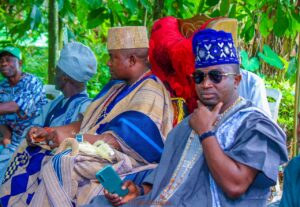
She also noted that “This is the time we are to rebrand the face of our cultural and traditional artefacts, concepts and ingredients for global consumption. I am indeed pleased about the tourism traffic witnessed in the celebration of our heritage and the support of the members of the town.”
The entertainment of the festival was contested between the Egungun masquerade and the Sango priest.
The Bata drum seems to be of help when the Sango priest cuts off his tongue, spilling his blood, all to open his mouth with his whole tongue unharmed.
The Egungun seems to keep dialoging with his drummers, not leaving behind his heavenly voice and calculable movements as a bid to notify the public that beneath the Agbalumo tree is a different world of reality.
The long train of beautiful ladies regarded as the Osun princesses gives any willing bachelor a sense of hope that the gods would surely answer their secret prayers.


